Discover Liberating Motherhood
Liberating Motherhood

Liberating Motherhood
Author: Liberating Motherhood
Subscribed: 73Played: 1,807Subscribe
Share
© Zawn Villines, LLC
Description
Mothers are tired of anti-mother misogyny, household labor inequality, and a culture that expects mothers to bear the burdens of its many shortcomings--all without complaint. Mothers are vital to feminism, and have been neglected in feminist discourse for far too long. Mothers are constantly told that political problems are personal--that if we communicate better, mother better, behave better, things will improve. The only path to change is through widespread political change. That's what this podcast is about. Maternal feminism is an important prong of social justice work, and all people interested in a just world should care about what happens to mothers, families, and children.
31 Episodes
Reverse
“White feminism is often about becoming equal to men, which makes you the leading oppressor across the globe. It leaves everyone else behind.”—Desiree Stephens
I’ve been thinking a lot lately about how we bring more women—especially white women—into the feminist fold. And then, once they’re there, how do we get them to embrace an intersectional approach that acknowledges and tackles the entirety of supremacy culture? I think the answer begins and ends with community—building community, working through conflict, determining who in our community to support and prioritize.
I brought my friend Desiree Stephens on the podcast to talk about how we build community across difference, how we recruit more women to the cause, and why things between Black women and white women so often break down.
In this episode, we talk about:
Why white women often end up feeling so defensive and aggrieved in anti-racist spaces.
Why the closer proximity of white and Black women, as opposed to white men and Black women, fosters both conflict and opportunities for change.
The notion that white women are in charge of social change while white men are in charge of systemic change.
Shame as a colonial construct, and how the cycle of shame often keeps white women stuck.
Why you cannot call yourself an ally—and why no one can attest that any person is a universal ally, or even a consistently reliable ally.
What Desiree means when she says to give white men grace (and why it’s not about overlooking abuse).
What it actually means to say that there are no good white people, and how “goodness” is a creation of supremacy culture.
The link between mean girl culture and white supremacy.
How white women should respond to call-outs.
How leaving white supremacy can be similar to leaving abusive relationships.
Worth is inherent; access is earned.
About Desiree Stephens
Desireé B. Stephens, CSP-P, is a dynamic educator, counselor, and community builder dedicated to liberation through decolonization and whole-self healing. As the founder of Make Shi(f)t Happen and creator of the LIBERATE Framework™, she helps individuals and organizations dismantle systems of oppression, foster inclusive spaces, and embrace sustainable transformation.
With a background rooted in trauma-informed care and intersectional approaches, Desireé specializes in wellness-centered, anti-harassment education and training. Her work spans personal growth, workplace equity, and community healing, offering tools that empower people to take actionable steps toward liberation.
Desireé combines deep empathy with practical strategies, ensuring her teachings are both accessible and transformative. Through her Liberation Education Substack, seasonal circles, and workshops, she inspires changemakers to embrace introspection, dismantle oppressive systems, and build intentional, intersectional communities.
Desireé’s passion for equity, reflection, and transformation is informed by her lived experiences and her commitment to co-creating a world where everyone can thrive. She believes in the power of rest, reflection, and intentional action to drive meaningful change—within ourselves and in the world around us.
Childbirth is an incredibly powerful rite of passage. The literal creation of life could be a source of empowerment, no matter how any individual person chooses to do it. Instead, patriarchy weaponizes birth as a tool of trauma and oppression that steadily normalizes the dehumanization of motherhood.
My transition to motherhood included a massive fight against the hospital where I intended to give birth, multiple threatened lawsuits, and ultimately, a terrified hospital board attempting to appease me. That experience taught me that patriarchy depends on our silence, fear, and submission. When we fight back, we often win. The opening vignette for this podcast is the story of my first birth—the birth that solidified my identity as a birth justice activist.
I met Cristen Pascucci of Birth Monopoly during the protest surrounding my first birth, and she’s been a friend and ally ever since. She’s a rich font of knowledge about birth and reproductive justice, and I think you’re going to love her.
Some of the many topics we cover include:
How patriarchy uses childbirth to enforce women’s submission and subjugation.
The ways patriarchy weaponizes childbirth to get women to accept the devalued role of mother.
Why even many feminists don’t take issues of birth justice seriously.
The notion of birth as a punishment.
Why we demand that women have no specific requests or desires surrounding their births, and why we stigmatize women for having any needs at all.
The psychological effects of birth trauma, and why physical safety (which is wholly lacking in the American maternity care system) is not the only type of safety that matters.
Why going along with the system doesn’t work, and why this is not about natural or crunchy birth.
How a healthy birth system can manage medical interventions and save lives without also traumatizing families.
Why we frame women as selfish for having any needs at all when they give birth.
Patriarchy as a tool for controlling birth.
The epidemic of racism in childbirth, and the role of white women as both victims and victimizers in the birth justice movement.
How abusive clinicians weaponize the same tools as domestic abusers, such as by pretending to be victims.
The stunning degree of abuse and neglect we expect women to accept during postpartum.
The collective trauma of women in an abusive birthing system, and how this system steals years of women’s lives.
How meeting patriarchy’s production demands can conceal women’s trauma, especially after birth.
If you’re unfamiliar with the American birth system, you might not know that birth has gotten more dangerous here over the last generation, not less, and that we are the only wealthy nation in which this is happening. Maternal mortality here is skyrocketing, and abuse is rampant.
It’s not just an American problem, though. Patriarchy weaponizes birth to hurt women across the globe. Even in nations where birth is physically safe as compared to the United States it is often not psychologically safe. I’ve written extensively about the state of birth in the US. You can read some of those pieces over on my Daily Kos column, as well as here, here, and here.
About Cristen Pascucci
After the birth of her son in 2011, Cristen Pascucci left a career in public affairs to study American maternity care and women’s rights within it. In 2012, she joined ImprovingBirth as vice president, spearheading a multi-year grassroots media strategy to get the maternity care crisis in national news, creating a legal advocacy hotline for pregnant women, and raising awareness around obstetric violence through consumer campaigns, including 2014’s #BreaktheSilence–a campaign adopted in multiple European countries as a consumer advocacy strategy.
Cristen has helped organize, strategize, and publicize major lawsuits related to obstetric violence in hospitals. She is co-creator of the Exposing the Silence Project and host of Birth Allowed Radio. As founder of Birth Monopoly, Cristen advocates for a freer maternity care market, working closely with leading national advocates, organizations, and birth lawyers, as well as educating the public and healthcare providers about women’s human and legal rights in childbirth. After a decade of full-time work on the issue of obstetric violence, Cristen is now working on a documentary film on the subject: Mother May I.
Podcast scheduling note
We almost hit our goal of 50,000 downloads this month, so I’ve decided to keep doing weekly podcasts for as long as I can. Because things are slow in December, I will only release two episodes that month, I will then pick back up the second full week of January, with weekly podcasts for season three. Thanks for your ongoing support. Please continue to comment, like, share, and most importantly, leave positive reviews on your favorite podcast platform.
LC DeShay is a reproductive justice sociologist, as well as a doula and lactation consultant who has worked on the front lines of women and children’s health. I brought them on as a witness, as someone who has seen what we do to women at their most vulnerable moments. I wanted to talk specifically about the male loneliness epidemic, and how it is weaponized to extract even more labor from women at their most vulnerable moments.
But LC never disappoints. They also moonlight as a coach/domme/marriage destroyer (and maybe saver), and in that capacity, they’ve worked directly with the sort of men I write about—and often, gotten them to make real change.
What started as a conversation about male loneliness turned into a sweeping fever dream about what it means to be a person, to love, and to truly court change.
LC has a lot to say, and so much experience to draw upon, so I can promise you with certainty I will definitely be bringing them back!
About LC DeShay
LC is a genderqueer IBCLC, Doula, & reproductive health analyst & gender journalist who focuses on sexual ethnography. In the first 15 years of their career, they worked at the UCLA Roxbury & at various clinics on skid row facilitating and coordinating data collection and case management for various risk reduction sexual and behavioral health research projects. Once she completed her sexual health counseling & doula training, as well as completed her IBCLC credential at UCSD, began practicing with their local Midwifery and Pediatric private clinician group. She spent her time there fighting locally and on a state level to ensure that breastfeeding and perinatal mental health care was approved, covered, and included in ACA health care coverage, whilst advocating for universal health care and paid leave.
LC also was then assistant instructor for the UC system global perinatal & lactation program and continued to work in L&D, Peds, NICU, and other reproductive in and out patient departments in UC, Providence, & civic hospitals & clinic systems up until the pandemic and the birth of their fourth child. In the last 5+ years, they expanded their career consulting with healthcare technology companies & communication in the sexual and family health fields to combat the impact of prejudice in technology and media for sexual and gender health.
Though proud of their professional life by day, they use their platform as the Digital Dominatrix to advocate fiercely for the socioeconomic protection of domestic violence victims and sex workers of child bearing age “by night”. LC is also a married parent of four, a gender deconstructionist, & proud ecofeminist.
Quick reminder that I’m sure you’re tired of hearing by now: This month, I’ve been inundated with messages from folks who love the new pace of podcasts—weekly instead of every other week. I love making the podcast and love giving you what you want, but the podcast is a ton of work, and it underperforms in the algorithm. My data show that people listen to the podcast, but they don’t otherwise engage after or before listening, which pushes it down in the all-powerful algorithm.
So I’m asking for your help, and offering something in return: Please heart-react, leave a review, leave a substantive comment (not one-word comments, which actually hurt visibility in the algorithm), like, share, etc. This is hugely beneficial. I believe with a bit more engagement we can get this podcast performing just as well as my written work. I will continue posting weekly episodes through the month of November. If, by the end of that period, the podcast can get to 50,000 monthly downloads (double the usual number), then I will continue weekly posting. Let’s do it.
Violence and abuse are normalized in every aspect of our culture, and particularly in parenting. No wonder so many women tell me they didn’t recognize abuse until it was too late.
Authoritarian parents set their children up for abusive relationships, and they damage their kids’ self-esteem and emotional intelligence in the process. Whether you call it authoritative parenting, gentle parenting, compassionate parenting, or just not parenting like a jerk on a power trip, a more conscious approach to parenting is one of the best gifts we can give our children.
The challenge is that many parenting experts peddle in shame: shaming mothers, diminishing their struggles, demanding an aesthetic of perfection instead of a commitment to progress.
I’ve long wanted to bring a parenting expert on the podcast, but so much parenting advice just ends up making us feel worse. I don’t think that’s the case with Devon Kuntzman, who specializes in toddlers, but whose core principles can apply to most children. In this podcast episode, we tackle your parenting questions about sensory needs, parenting disputes, screen time, childcare, and so much more.
About Devon Kuntzman
Devon Kuntzman, PCC, is the founder of Transforming Toddlerhood, a certified coach, and a mom to a 3-year-old. She’s on a mission to rewrite the narrative on the “terrible twos” and beyond, helping parents see toddlerhood as a once-in-a-lifetime opportunity to build social, emotional, and relationship skills.
As the original toddler parenting coach on Instagram, with a background in psychology and child development, Devon has guided tens of thousands of families worldwide to parent with more calm, confidence, and joy.
Her new book, Transforming Toddlerhood, is designed to support, not guilt, parents, offering tools, encouragement, and a fresh perspective to turn this challenging season into one of the most meaningful chapters of the parenting journey.
Follow her on Instagram here.
This month, I’ve been inundated with messages from folks who love the new pace of podcasts—weekly instead of every other week. I love making the podcast and love giving you what you want, but the podcast is a ton of work, and it underperforms in the algorithm. My data show that people listen to the podcast, but they don’t otherwise engage after or before listening, which pushes it down in the all-powerful algorithm.
So I’m asking for your help, and offering something in return: Please heart-react, leave a review, leave a substantive comment, like, share, etc. This is hugely beneficial. I believe with a bit more engagement we can get this podcast performing just as well as my written work. I will continue posting weekly episodes through the month of November. If, by the end of that period, the podcast can get to 50,000 monthly downloads (double the usual number), then I will continue weekly posting. Let’s do it.
In a patriarchy, motherhood is impossibly hard. That’s by design. Because if every woman struggles with motherhood, then every mother feels inadequate. This causes us to feel guilty, and to blame our challenges on our individual failings rather than correctly identifying the political forces that make motherhood feel so impossible.
Alex Bollen has worked with mothers, especially in the vulnerable postpartum period, for years. Her new book, Motherdom: Breaking Free from Bad Science and Good Mother Myths, explores the politics of motherhood and especially how myths about “good mothers” set all mothers up for failure.
In this podcast episode, we discuss a wide range of issues, including:
The critical importance of motherhood as a focus of feminist activism.
How the myth of the good mother (and its bad mother opposite) is used to control all women and all mothers.
How patriarchy weaponizes “science” to control and shame mothers.
The weaponization of attachment parenting.
Why we pretend that mothers are stupid, and that nothing mothers do is challenging or intellectual.
How disadvantaged mothers typically must accumulate more skills and ingenuity than other mothers, but are treated like they know and deserve less.
The concept of unmothering, and how we rob Black and other less-privileged mothers of their status as mothers.
How systems of oppression isolate women from other women and destroy systems of community.
Why we devote so much energy to telling mothers to “tough it out,” while robbing them of all resources that would make it possible for them to manage the challenges of motherhood.
About Alex Bollen
Alex Bollen is the author of Motherdom: Breaking Free from Bad Science and Good Mother Myths. She was a director of the research agency Ipsos and is now a freelance researcher. Alex is also a Postnatal Practitioner with the NCT, the UK’s largest parenting charity, and has run groups for new mothers in London for over a decade. Motherdom is Alex’s first book. She was inspired to write it because she felt incensed about all the guilt-inducing garbage which is peddled about motherhood.
You can find Alex’s book, as well as all other books recommended on the podcast, along with a detailed reading list, at the Liberating Motherhood Bookshop.
I’ve been thinking a lot lately about what it means to be a public intellectual who also happens to be a woman. The constant criticism feels like a crushing weight that no amount of therapy, resilience, or blocking can render manageable.
Philosopher
Kate Manne has long argued that the abuse patriarchy hurls at women is a policing mechanism designed to punish women who step out of line. It seems clear to me that the endless policing of women who have any public presence is designed to silence us. It is that knowledge that keeps me writing and talking, even when both are incredibly painful.
I brought Kate onto the podcast to talk specifically about this attempt to silence public women and public feminists. Our conversation ended up being about so much more:
What it’s like to speak publicly about anything when you’re a woman.
Feminist moralism as a corrosive force in our movement.
Why women are canceled for everything and men are canceled for just about nothing, and how it leads to a public sphere in which low-value men have replaced women who could have otherwise made great contributions.
The role of shame in moral education and moral behavior, and how resistance to shame might influence feminist discussions.
How we can have better feminist conflict—and why conflicts in feminism are so difficult to manage.
Sex work as an example of one of feminism’s hardest-to-discuss conflicts.
We really could have pulled any of the threads in this episode into their own episode; it’s that dense. I always love having Kate on the podcast, and I hope this episode offers lots of food for thought.
I’m releasing this episode along with this post, in which I also discuss the policing of women who speak publicly about anything. I hope that, together, both posts will encourage us all to think more deeply and broadly, and to build solidarity rather than demanding immediate consensus.
About Kate Manne
Kate Manne is an associate professor at the Sage School of philosophy at Cornell University. She specializes in moral, social, and feminist philosophy, and has written three books: DOWN GIRL: The Logic of Misogyny (Oxford University Press, 2018), ENTITLED: How Male Privilege Hurts Women (Crown, 2020) and UNSHRINKING: How to Face Fatphobia (Crown, 2024), a National Book Award finalist in non-fiction. In addition to academic work, she regularly writes opinion pieces and essays for a wider audience, including in outlets such as The New York Times, The Cut, The Washington Post, The Atlantic, The Nation, and Time. She writes a substack newsletter, More to Hate, exploring misogyny, fatphobia, and their intersection.
You can find all of Kate’s books, all the books I discuss on the podcast, and a long list of book recommendations, at the Liberating Motherhood Bookshop.
If you like this podcast or find my work valuable, I hope you’ll consider supporting it! Your paid support ensures I never have to take advertiser dollars, and am beholden only to my readership. You’ll also get access to one more podcast episode each month, eight additional pieces of written work, and membership in the Liberating Motherhood Community.
You can also support this podcast for free! Heart-reacting makes a huge difference, as does commenting and sharing on social media. If you listen to this podcast on a podcast platform, please leave a positive review; it makes a huge difference. Oh, and tell the people you love about this podcast too!
The devaluation of fatness in patriarchy is no accident—and it’s not about health. Patriarchy convinces every woman she’s fat, or at risk of becoming fat, and forces us to spend our lives thinking about our bodies instead of the things that truly matter most to us. As we’ve seen over and over again, a woman who hates herself is more vulnerable to abuse and less likely to abandon shame, band together with other women, and demand better.
But we can and must demand better. Virginia Sole-Smith is on a mission to end anti-fatness and diet culture for good. She came on the show to talk to me about fatphobia, diet culture, and strategies for raising kids who are not so preoccupied by their bodies and food.
Some of the topics we discuss include:
What diet culture is, and how it extends well beyond diets.
Why diet talk isn’t really about health, and how best to respond to concern-trolling about weight.
Giving yourself permission to not forever live on a hamster wheel of weight loss.
Healthy strategies for talking to kids about bodies, beauty, and weight.
How to talk to kids about gendered beauty labor.
Managing negative food and body messages from friends, school, and daycare—plus, when to opt out of diet and body-related assignments.
Is perimenopause content diet content?
The problem with Dr. Becky, and with parenting advice generally.
How we can feel hopeful in a political climate that seeks to demoralize us.
About Virginia Sole-Smith
As a journalist, Virginia Sole-Smith has reported from kitchen tables, graduated from beauty school, and gone swimming in a mermaid’s tail. Virginia’s latest book, Fat Talk: Parenting in the Age of Diet Culture, is a New York Times bestseller that investigates how the “war on childhood obesity” has caused kids to absorb a daily onslaught of body shame from peers, school, diet culture, and families— and offers research-based strategies to help parents name and navigate the anti-fat bias that infiltrates our schools, doctor’s offices and dinner tables.
Virginia began her career in women’s magazines, alternatively challenging beauty standards and gender norms, and upholding diet culture through her health, nutrition and fitness reporting. This work led to her first book, The Eating Instinct: Food Culture, Body Image and Guilt in America, in which Virginia explored how we can reconnect to our bodies in a culture that’s constantly giving us so many mixed messages about both those things.
Virginia’s work appears in the New York Times Magazine, Scientific American, and many other publications. She now writes the popular body liberation newsletter Burnt Toast and hosts the Burnt Toast Podcast. Virginia lives in New York’s Hudson Valley with her two kids, two cats, a dog, two geckos, eight chickens, and way too many houseplants.
You can find all of Virginia’s books, all books we talk about on the podcast, and a ton of book recommendations at the Liberating Motherhood Bookshop.
“Hope is a muscle.” — Marlene Gerber Fried
Marlene Gerber Fried has been a leading reproductive justice and choice activist for decades. She’s seen and survived times of both hopelessness and triumph. She partners often with women of color, especially Loretta Ross, and her expansive vision of what a better world might look like feels like exactly what we need right now. It was such a gift to talk to her. It left me feeling more hopeful, and much more energized. I hope our conversation has the same effect on you.
In these episode, Marlene and I talk about a wide range of topics, including:
What a “good abortion” might look like in a healthier, safer world.
Reproductive justice and liberation as more expansive visions of reproductive choice.
Why we must sustain hope, and how we do that as everything burns around us.
How the Republican fascist overreach may destroy itself.
Why we must simultaneously take fascist threats seriously and avoid being daunted by them.
How we can parent children in a world that makes us terrified for their futures.
What it takes to sustain a lifetime of successful activism.
About Marlene Gerber Fried
Marlene Gerber Fried is a longtime reproductive rights activist and scholar. She was the founding president of the National Network of Abortion Funds and the Abortion Rights Fund of Western Massachusetts. Currently she is Professor Emerita at Hampshire College, where she taught for 37 years. She is Senior Faculty Advisor to Collective Power for Reproductive Justice, serves on the board of Women Help Women, and co-chairs the Our Bodies Ourselves expert panel on Abortion and Contraception with Pamela Merritt and Candace Bond-Theriault. She edited, From Abortion to Reproductive Freedom: Transforming A Movement, and co-authored with Jael Silliman, Elena Gutierrez and Loretta Ross, Undivided Rights: Women of Color Organize for Reproductive Justice. Her most recent book, Abortion and Reproductive Justice; An Essential Guide to Resistance, co-authored with Loretta Ross has just been released.
You can buy Abortion and Reproductive Justice, the latest book by Marlene Fried and Loretta Ross, here.
When Roe fell, I interviewed a wide range of experts about how to survive in this new and frightening world. I talk about that piece in the podcast. You can find it here. You can also read my long-running Daily Kos abortion column, which painstakingly outlines the case for reproductive rights (why bans don’t stop abortion, why abortion is vital for health, how abortion laws affect an entire community, and so much more) here.
A quick programming note: I am experimenting with publishing a podcast every week for the month of October. I want to see if this pace feels sustainable for me, and if it helps the podcast grow. If you like the more-frequent posting schedule, you can vote by sharing the podcast, leaving a positive review on your favorite podcast platform, heart-reacting it on Substack, or sharing on social media. These actions help the podcast reach a wider audience and can make it easier for me to continue making this podcast.
Discovering Soraya Chemaly’s work on women’s anger was a revelation for me. I was finally able to claim my own anger, rather than dismiss it as juvenile and embarrassing. We must be able to claim our anger, because we have plenty to be angry about.
I was so thrilled to get to interview Soraya, and I think you will love her if you’re not already familiar with her rich body of work.
Some of the many topics we discuss in this podcast episode include:
The power of women’s anger—and why patriarchy wants to keep that anger under control.
The credibility gap, and how it undermines women’s authority.
Why we associate genius and intelligence with boys, and foolishness with women.
Constructing women as annoying.
Soraya’s arguments in favor of pettiness.
What resilience means and doesn’t mean, and how the wider culture constructs our assessment of risk in parenting.
Soraya Chemaly is an award-winning feminist writer, speaker, and activist. Former Executive Director of The Representation Project and co-founder of the Women's Media Center Speech Project, she is committed to expanding women's civic and political participation.
Soraya is the author of Rage Becomes Her: The Power of Women's Anger, recognized as a Best Book of 2018 by the Washington Post, NPR, and others. Her work appears in TIME, The Guardian, The Washington Post, The Atlantic, and Ms. Magazine, and she has been featured on NPR, PBS NewsHour, BBC, and MSNBC.
She serves on the Women's Media Center board and has been recognized by the Association for Education in Journalism and Mass Communication and awarded a Wikipedia Distinguished Service Award. Her next book, All We Want is Everything: How We Dismantle Male Supremacy, will be released November 11, 2025.
Read Soraya’s Substack here, or visit her website here.
Lawyers have always been on the frontlines of the fight for social justice. Nearly every enshrined right women have is thanks to a lawsuit. Fatima Goss Graves is an attorney and expert in using the law for good. I’ve followed her work since the days of Time’s Up, and literally squealed when her team reached out to me about appearing on the podcast.
Her wisdom is rich and deep, and I hope she’ll inspire some hope that we can still build a brighter tomorrow—even now. Hope is one of the most powerful tools we have.
You’ll have to excuse my hoarse voice; I’ve had a never-ending cold for weeks, and am partially convinced that this is just how I sound now.
In this interview, Fatima and I discuss a wide range of topics, including:
The history of The National Women’s Law Center, and how women can use the law as a tool of social justice.
Why we mustn’t comply in advance in the face of fascism.
The fact that we still have rights, even now, still have protection against discrimination, and the law can still work for activists, if we know how to use it.
Lawsuits as a tool for enforcing civil rights.
The fight for accessible and affordable childcare, and why it is so integral to women’s freedom.
Why women are leaving the workforce—and how we can bring them back.
How governments can enact truly family-friendly policies.
The policing of children in schools, the failure to accommodate children’s academic needs, and what a healthier school system might look like.
About Fatima Goss Graves
Fatima Goss Graves is a nationally recognized leader in the fight for gender justice and an expert in law, policy, and culture change. She is President and CEO of the National Women’s Law Center, President of the National Women’s Law Center Action Fund, and a co-founder of the TIME’S UP Legal Defense Fund.
You can get help from the National Women’s Law Center here. Learn more about volunteering/partnering with NWLC here.
You can find more information about your employment rights under the Civil Rights Act here.
Watch Fatima go hard against DOGE here.
Do I have men? Should you? Yes. No. Maybe. Misogynist men love to weaponize false claims of misandry against women. In fact, one of the clearest signs that a man is a misogynist is that he thinks misandry is real, common, and a threat.
Jeff and I have wanted to talk about bogus claims of misandry for a long time. Here’s the result.
Some of the many topics we talk about in this podcast include:
Why we need to stop saying “sexual coercion” or “obligatory sex” and start calling it rape.
The history of the term “misandrist,” and why it’s always been a part of bad faith arguments against women’s rights.
Does Zawn hate men? (Jeff’s answers: “No. Yes. Not all men.”)
Why so many men see movements for women’s rights as a threat.
Why men who actually like women are unthreatened by feminism.
Men’s frustration at having to actually work for things.
Jeff on the most pathetic kind of sex anyone can have.
Why misandry can never be analogous to misogyny.
The disparity between Zawn and Jeff’s experiences complaining about poor medical care.
Why men are so committed to wasting so much of women’s time.
We end with our new feature, the Liberating Motherhood Complaint Box. This is where we address the whining, bloviating nonsense your husbands tell you about my podcast specifically, or feminism more generally. It culminates in Zawn referring to a man as a “loser bitch.”
Make your partner’s ignorance famous, and subject him to my judgment! You can submit your own complaint for next month’s complaint box here. Please only use this form to submit complaints from men specifically about feminism or my podcast—not general complaints, not general questions, not general messages for me.
If you need to contact me for something else, you can find forms for just about everything on the Liberating Motherhood website.
The full results of the survey I mention will be available to paid subscribers September 9, 2025.
We have new kittens, and they currently live in my office, which they are destroying. They are aspiring misandrists, and were quite interested in the podcast. For this reason, you’ll hear some background noises.
Statistically, dating men in a patriarchy remains the most dangerous thing a woman can do. Patriarchy is deeply committed to shepherding us into romantic relationships because of the control these relationships exert—and because patriarchy wants to give every man a woman-appliance.
This does not change the reality that many women want relationships with men—and that healthy relationships are possible, if improbable, even in a patriarchy.
Jennie Young understands this tension, and is on a mission to protect as many women from abusive relationships as she can. She acknowledges that men are dangerous, and uses this insight to help women filter potential date partners as quickly as possible. Some of the topics we talk about include:
The dating apocalypse, and why dating is such a nightmare
The rhetorical patterns that flag for misogyny
Empowering women to judge men harshly
The role of pornography in online misogyny
Jennie’s own experiences dating
The rhetorical trends sweeping the dating apps, and what they reveal about men
About Jennie Young
Jennie Young is a professor of writing and rhetoric at the University of Wisconsin-Green Bay, specializing in applied rhetoric, humor, and feminism. She holds a Ph.D. in rhetoric and discourse studies from Case Western Reserve University and a satire writing certificate from Second City Chicago. Her work has been published in McSweeney’s, Ms. Magazine, HuffPost, and others and covered by major media outlets such as The New York Times, RollingStone, Washington Post, Newsweek, and Wall Street Journal.
Visit Jennie at her website here, and be sure to check out her Substack. You can join her man-free support group on Facebook.
You can preorder her book, Burn the Haystack, here.
Find all books referenced on the podcast, as well as additional book recommendations, here.
“We are allowed to have a good life while giving our children good lives.” — Ruthie Ackerman
In patriarchy, there’s no way to get motherhood right. No matter what you do, someone will always gleefully tell you it’s wrong—and then use this shame to attempt to shrink you. Patriarchy wants to convince women that the challenges of motherhood are personal, not political, that our failings are our own fault rather than the predictable result of unacceptable structural realities.
Journalist Ruthie Ackerman wasn’t sure if she wanted to have kids, wasn’t sure if she could be a good mother, and didn’t know if it would be possible to be a mother and still have a good life. In her new book, The Mother Code, she grapples with the myths that color our perceptions of motherhood and ourselves. I loved talking to her about mother culture, patriarchy, fertility, and more. In this epsiode we talk about:
The fertility wealth gap
Having a good life while being a good mother
The financial realities that constrain mothers’ options
Maternal dread and maternal ambivalence
As always, you can help support this podcast by heart-reacting, liking, commenting, sharing on social media, and leaving a review on your favorite podcast platform.
About Ruthie Ackerman
An award-winning journalist, Ruthie Ackerman’s writing has been published in Vogue, Glamour, O Magazine, The New York Times, The Atlantic, The Wall Street Journal, Forbes, Salon, Slate, Newsweek, and more. Her Modern Love essay for the New York Times became the launching point for her memoir, The Mother Code: My Story of Love, Loss, and the Myths That Shape Us. Ruthie launched The Ignite Writers Collective in 2019 and since then has become an in-demand book coach and developmental editor. Her client wins include a USA Today bestseller, book deals with Big 5 publishers, representation by buzzy book agents, and essays in prestigious outlets. She has a Master's in Journalism from New York University and lives in Brooklyn with her family.
Find her on Substack here, or check out her website or Instagram. You can buy her book, The Mother Code, here.
Find all of the books I recommend on the podcast at the Liberating Motherhood Bookshop.
You can find The Retrievals, the podcast we mention, here.
“We need to figure out how to create political, social solidarity that is not reliant on some sort of fantasy that they have to see us, hear us, etc. That idea that we need to be in perfect harmony to work together is not going to happen. It’s a fool’s errand, a waste of time and energy. That doesn’t mean you can’t work with somebody…There’s so much energy wasted in the left on coming to consensus. You don’t need consensus. You need solidarity.” — Jessa Crispin
I discovered Jessa Crispin shortly after Donald Trump was elected, when I stumbled across “Why I am Not a Feminist.” I thought it was going to be another annoying anti-feminist tome, or a moderate feminist insisting we need to be less radical. It was neither. It was so tightly argued, so compelling and thoughtful, that when her publicist reached out to me about appearing on the podcast, I literally squealed.
Jessa is a cultural critic who talks about feminism, relationships, literature, and film. She has done SO MUCH. She knows so much. I adore her, even when I disagree with her, and I think you’ll love her to.
Some of what we talk about in this wide-reaching episode:
Building consensus vs solidarity, and why the left in the United States is so ineffective.
How the Trump administration shifted feminist discourse.
What if we just got rid of all the men?
The zombie patriarchy, and why it makes everything so confusing.
Why Jessa believes patriarchy doesn’t really exist anymore (but don’t send her hate mail; this doesn’t mean she thinks misogyny is done or feminism is pointless).
Why women continue to enter into marriages, which serve as a key tool of oppression. Spoiler alert: it’s because marriage opens access to resources that are increasingly inaccessible.
The challenges of living a principled, purposeful life.
About Jessa Crispin
Jessa Crispin is the author of several books, including Why I Am Not a Feminist: A Feminist Manifesto, The Dead Ladies Project, and My Three Dads. She is the editor and founder of The Culture We Deserve as well as host with Nico Rodriguez of TCWD weekly podcast. In 2002, she launched Bookslut.com, one of the first and most treasured literary websites of the era; it ran for fifteen years. She is originally from Lincoln, Kansas, and currently lives in Philadelphia.
Jessa’s latest book, What is Wrong With Men?, explores feminism and masculinity through Michael Douglas films. Her Substack, The Culture We Deserve, is amazing.
I have links to all of Jessa’s books, as well as a long list of recommended texts, on the Liberating Motherhood Bookshop.org page.
If you like this podcast or find my work valuable, I hope you’ll consider supporting it! Your paid support ensures I never have to take advertiser dollars, and am beholden only to my readership. You’ll also get access to one more podcast episode each month, eight additional pieces of written work, and membership in the Liberating Motherhood Community.
You can also support this podcast for free! Heart-reacting makes a huge difference, as does commenting and sharing on social media. If you listen to this podcast on a podcast platform, please leave a positive review; it makes a huge difference. Oh, and tell the people you love about this podcast too!
My next podcast episode will be out two weeks from today, and I’ll be talking about misandry, man-hatred, what it means to hate men, and whether I hate men.
Misogyny isn’t really about hating women. After all, if pure hate explained everything, wouldn’t that mean that only mean men abuse women, and that misogynists never seek relationships with women? Men are able to mistreat women they claim to love because of the internal logic of misogyny. They’re not irrational or unhinged; they’re following a set of rules rooted in entitlement.
Kate Manne is a philosopher who focuses on understanding what’s behind the misogynistic behavior patriarchy creates and enables. She envisions misogyny as a sort of disciplinary tool for reinforcing gendered norms, and preserving men’s access to resources—especially the highly valuable resource of women’s labor.
We cover a lot of ground in this podcast, including:
The reflexive denial in the media of misogyny.
Misogyny as a system for enforcing men’s entitlement to women’s labor.
Why misogyny is not random and not mental illness, but instead a set of corrupt moral values that reflect the values of the wider culture.
Misogyny as more than mere hatred of women, and why certain women may be more impacted by misogyny than others.
How not to hate your husband after children…or maybe you should just hate him.
The normalization of all forms of violence.
The parallels between misogyny and fascism.
Fatphobia as a core element of misogyny.
About Kate Manne
Kate Manne is an associate professor at the Sage School of philosophy at Cornell University. She specializes in moral, social, and feminist philosophy, and has written three books: DOWN GIRL: The Logic of Misogyny (Oxford University Press, 2018), ENTITLED: How Male Privilege Hurts Women (Crown, 2020) and UNSHRINKING: How to Face Fatphobia (Crown, 2024), a National Book Award finalist in non-fiction. In addition to academic work, she regularly writes opinion pieces and essays for a wider audience, including in outlets such as The New York Times, The Cut, The Washington Post, The Atlantic, The Nation, and Time. She writes a substack newsletter, More to Hate, exploring misogyny, fatphobia, and their intersection.
Women are angry, and rightfully so. Yet everywhere we go, men tell us we are too angry, and that if we were just nicer about our oppression, they’d knock if off. Anger, though, is key to women’s liberation. Writer Gemma Hartley is here to tell us why.
About Gemma Hartley (and where to find her)
Gemma Hartley is a freelance writer with a BA in writing from The University of Nevada, Reno. She is author of FED UP: Emotional Labor, Women and The Way Forward. She has written a new book, No One Loves an Angry Woman, which will be out new year.
Her Substack, No one Loves an Angry Woman, explores feminism, anger, domestic labor inequity, and more. She also has an amazing Substack for writers, called Creative Commitment.
“We depoliticize distress by locating it in the individual.” — Naomi Fisher
Naomi Fisher helped me become a better mother without ever even meeting me. I stumbled across her work when one of my children was dealing with school anxiety. Doing so empowered me to take my child’s distress seriously and trust my instincts as a mother.
In this podcast episode, Dr. Fisher and I discuss the myriad harms of authoritarian parenting practices, that focus on compliance above all else. Dr. Fisher’s work focuses heavily on school anxiety and refusal. Some of the topics we discuss in this episode include:
The weaponization of mom-guilt and mom-shaming to gain compliance from mothers and children.
Why we spend so much time teaching parents not to trust their children’s emotions.
Alternatives to forced compliance, and what to do when a child doesn’t feel like they can go to school.
Why catastrophization plays such a significant role in parenting.
Antidotes to rigid thinking, and what to do when plan A (or B, or C) doesn’t work.
Why the relationship with the child must always come first.
Trusting children to know their needs, and helping them to advocate for those needs.
I absolutely love listening to Dr. Fisher, and I listen to this recording every time I need a pep talk to get through the hard times with my own kids. I hope it will have the same effect on you.
About Dr. Naomi Fisher
Naomi Fisher is an independent clinical psychologist. She specializes in trauma, autism and alternative ways to learn.
She has a doctorate in clinical psychology from Kings College London (Maudsley), a PhD in developmental cognitive psychology also from Kings College (IoPPN), and a degree in Experimental Psychology from the University of Cambridge. She is the author of four books: Changing Our Minds, The Teenager’s Guide to Burnout, A Different Way to Learn, and When the Naughty Step Makes Things Worse.
I urge everyone to visit her incredible Substack, where you will find so much wisdom.
You can also check out her website here.
Supporting This Podcast
This podcast depends on you to survive and thrive!
If you like this podcast, you can help me continue making it with your support! A few free ways to support include:
Leaving a positive review on your favorite podcast platform.
Liking and sharing the podcast on social media.
Heart-reacting the Substack post.
If you really love the podcast, you can get more of it by becoming a paid subscriber. Paid Substack subscribers get at least one bonus episode of the podcast each month, as well as eight bonus Substack posts and access to the Liberating Motherhood community.
The silencing and targeting of mothers is a deliberate act of damaging the next generation and attacking women. When we rob mothers of their power, we slow the process of human liberation.
Beth Berry is a coach, mentor, and seasoned mother and activist who works with mothers to access their power so they can be changemakers. In this podcast episode, we talked about maternal activism, making friends, and so much more. Here’s some of what we cover:
How activists often experience a diminishing of their humanity, and an expectation that we should have limitless capacity and resources,
What a sustainable lifetime of activism looks like.
The depoliticization of motherhood: Motherhood is inherently political. So why don’t we see issues of maternal justice as political?
The critical need for community: how we build it, why we struggle with it and so often lose it.
Why self-compassion has to be a part of any revolution.
Activism as performance vs. real activism, and why our liberation work must also look inward.
Why mothers live in fear of traumatizing their children, and how this can be a tool for controlling them.
How the demonization of awkwardness has made it impossible for us to build community.
The misuse and weaponization of boundaries work.
About Beth Berry
Beth Berry is a coach, teacher, author, and mother to four grown daughters. Through her online courses, small groups, and retreats, she helps mothers deconstruct disempowering narratives, deepen and heal their relationship with themselves, better understand and meet their needs, and live more meaningful and liberated lives.
Beth began supporting mothers more than 20 years ago as a La Leche League leader. Twelve years ago, she started her popular blog, Revolution From Home, which led to her writing a bestselling book, Motherwhelmed. Today, she teaches workshops and short courses, leads women on year-long healing journeys, and mentors others with a heart for gathering and nurturing mothers.
She envisions a future where mothers’ needs are visible and well-met and seeks to co-create a world in which mothers feel beautifully supported and able to create lives they truly love.
You can buy her book here.
Visit her website here.
Check out her amazing Instagram here.
Supporting This Podcast
If you like this podcast, you can help me continue making it with your support! A few free ways to support include:
Leaving a positive review on your favorite podcast platform.
Liking and sharing the podcast on social media.
Heart-reacting the Substack post.
If you really love the podcast, you can get more of it by becoming a paid subscriber. Paid Substack subscribers get at least one bonus episode of the podcast each month, as well as eight bonus Substack posts and access to the Liberating Motherhood community.
Liberating Motherhood is a reader-supported publication. To receive new posts and support my work, consider becoming a free or paid subscriber.
“I think about and write about this all the time, and yet I still think there’s something wrong with me that it’s so hard for me. It’s so hard to separate what we’ve been told…from the truth, which is that it’s not us.” — Mary Catherine Starr
Patriarchy tells everyone motherhood is easy, and demands that mothers perform ease. The pressure to do this conceals the realities of motherhood, convincing us that the highly political challenges of motherhood are personal, individual failings. As a result, we spend our lives on a hamster wheel making lists, going to therapy, and trying to do better rather than demanding better from an oppressive society.
Every woman thinks she’s the only one, but she is not. Because this is not personal; it’s political.
Mary Catherine isn’t just a force of nature; she’s also my childhood friend. So we talk about how our careers have unfolded, too, including dealing with incels and angry readers.
About Mary Catherine Starr
Mary Catherine Starr is a mother-of-two and a graphic designer, illustrator, yoga teacher, and the artist behind the Instagram account @momlife_comics. Mary Catherine's work focuses on the challenges of marriage, motherhood, double standards, and inequality in both the household and the workplace. She is passionate about speaking up for women and bringing awareness to the mental load + invisible labor of motherhood. Mary Catherine lives in Massachusetts with her family and her son’s large collection of plastic dinosaurs. Her first book, a comic memoir entitled Mama Needs a Minute!, will be out on March 11th, 2025.
You can follow Mary Catherine’s comic strip here.
Buy her amazing book here.
Follow Mary Catherine on Substack here.
Visit her website here.
The Patriarchal Playbook is my term for the set of canned responses, expectations, and norms men follow without thinking. This concept helps clarify why the behavior of sexist men is both predictable and often nonsensical. In this episode, Jeff and I discuss how that playbook damages heterosexual relationships and limits women’s options. We also go on a lot of sidequests, because we recorded this at night after not having seen each other all day.
Jeff talks a lot about the norms into which men are socialized, and how they’re a poor fit for relationships or being functional humans, let alone being decent partners to women.
We go on side tangents about my continuously failing weightlifting hobby, talk about why men have such bad hygiene, and have a fake fight. Jeff also somewhat randomly interviews me about the scope and nature of my work at the end. We also talk about the book I’m writing, and Jeff discusses his own pet topic: the police state.
We talk a lot about my work on men and hygiene. You can find those pieces here and here. I outlined the specifics of The Patriarchal Playbook in my Weapons Men Use and Gaslighting Inequality series, as well as in this piece on what to expect when you leave your partner.
I hope you’ll check out the newish Liberating Motherhood website, which has a TON of resources.
As always, liking, commenting, and leaving positive reviews are all great ways to support this podcast, thereby ensuring it can continue!


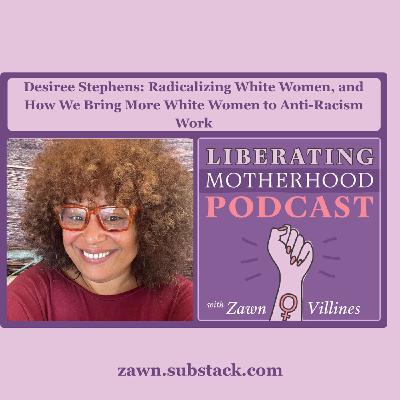
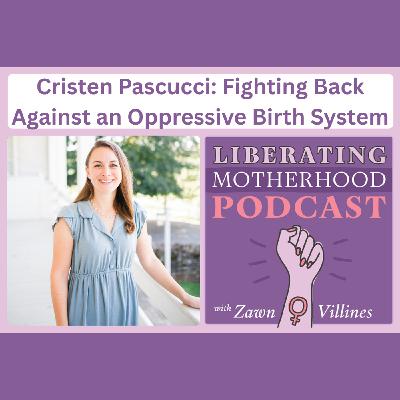
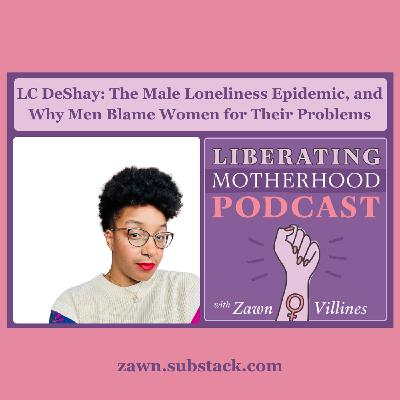
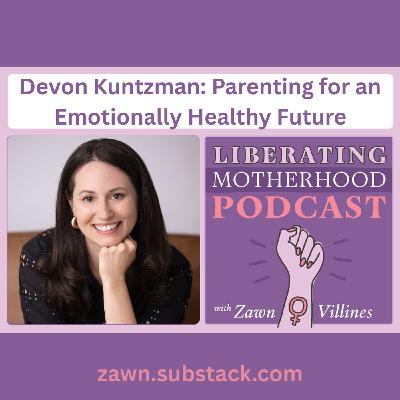

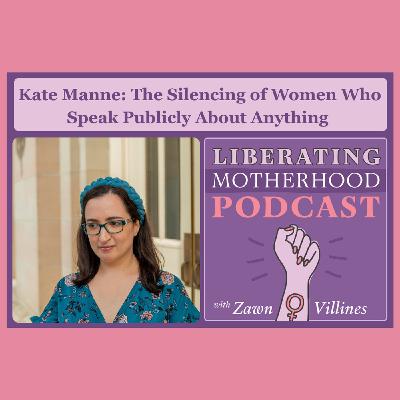
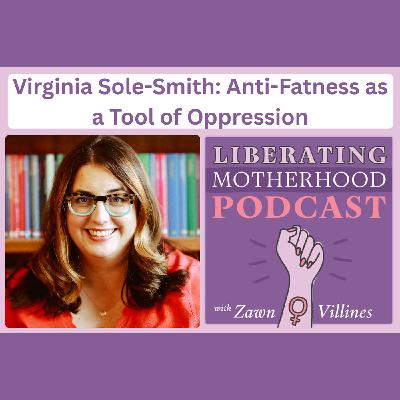
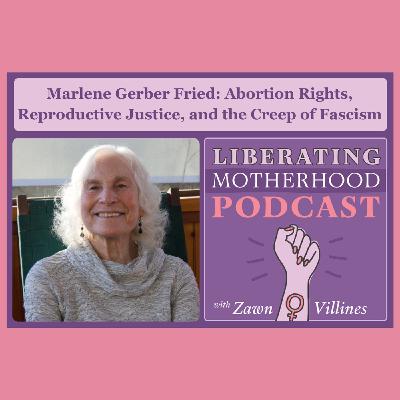



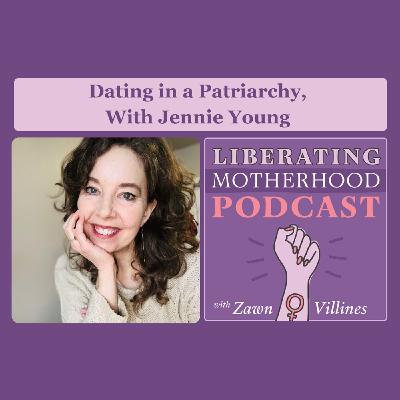
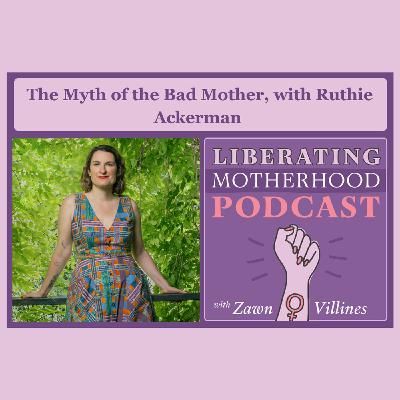
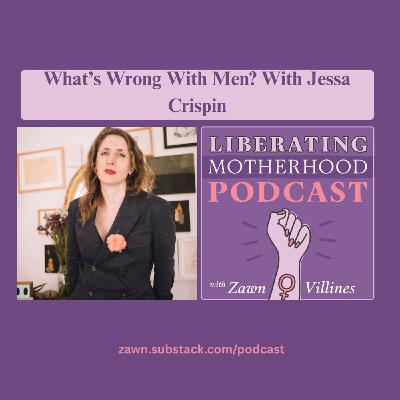
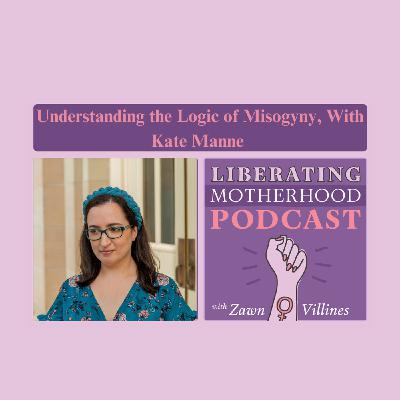
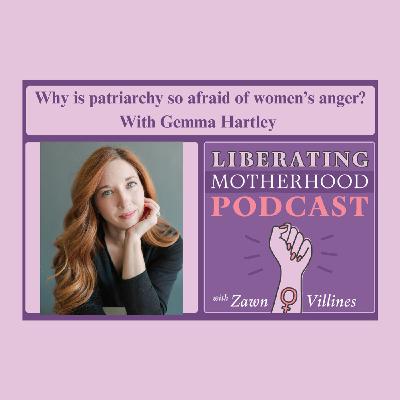
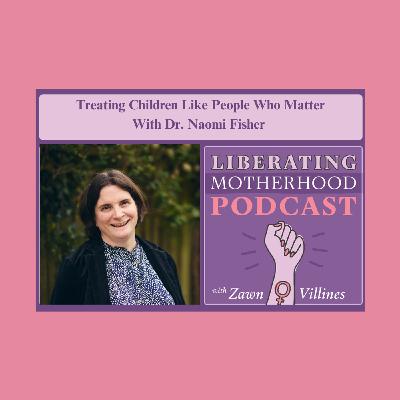
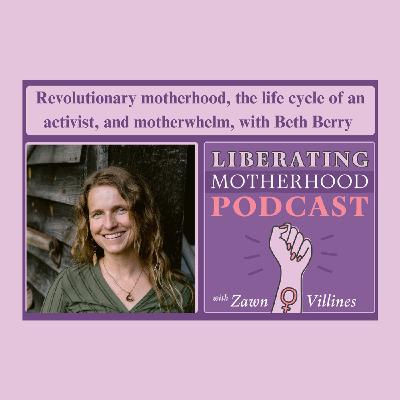
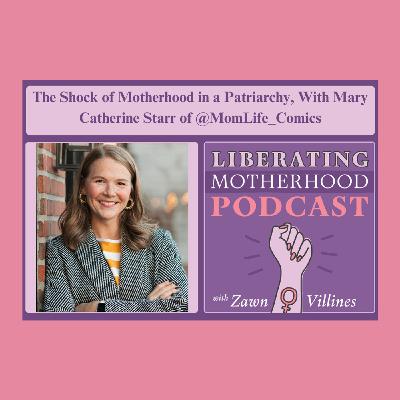
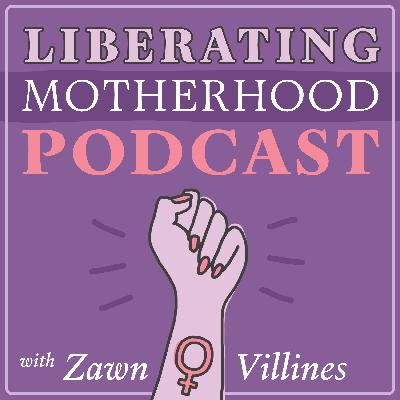



This was such a fascinating podcast, and so many of the good mother myths were familiar from when my kids were little. They are often also contradictory, which translates to there being no way to be a mother without being shamed for it - while being told that the whole thing is supposed to be easy.
excellent 👌